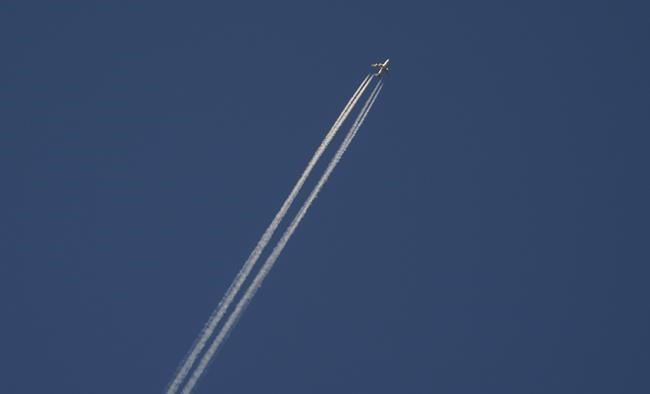A key Flair Airlines investor says a $30-million lawsuit filed against it by plane-leasing firms over claims of missed payments is "premature at best."
Miami-based 777 Partners, which owns one-quarter of Flair, confirmed that three lessors of aircraft that were repossessed from the budget carrier last spring filed their claim in London in December over lease payments guaranteed by 777.
The minority owner said it may try for a stay of proceedings on the suit by Corvus Lights Aviation, MAM Aircraft Leasing 4 and Columba Lights Aviation, which leased the four jets — a Boeing 737-800 and three 737 Max 8s.
Its sister company 600 Partners, which backed three of the four leases, is also named in the filing.
The lawsuit marks the latest act in a nearly year-long drama in Canadian aviation. Edmonton-based Flair, while not included in the suit, launched a $50-million court action of its own against the three leasing firms, as well as Airborne Capital, which manages their planes, in the Ontario Superior Court of Justice last year.
Payment demands from Airborne are "baseless" given that Flair is no longer leasing the jetliners, said airline spokeswoman Gabrielle Poirier.
"777 Partners remains supportive of Flair, the lessee, in its ongoing litigation against the egregious behaviour by Airborne," 777 Partners said in an email.
Flair's filings last March claim that Airborne Capital and the trio of affiliated leasing corporations secretly found a better deal for the Boeing 737 Maxes with a third party and then “set Flair up” for default, amounting to an illegal termination of leases.
“The seizures were orchestrated in a bad faith and malicious manner that inflicted the maximum possible harm on Flair, including by interfering with its passenger relationships and trust,” the statement of claim reads.
“The lessors sent agents to seize the aircraft in the middle of the night as passengers were boarding planes for spring break vacations.”
Flair said it received no notice, precluding the discount carrier from alerting or rebooking customers. The agents arrived at airports in Toronto, Edmonton and Waterloo, Ont., at 3 a.m. to confiscate the registration certificates and technical logs on board – the aviation equivalent of taking the car keys – the company has said.
None of the allegations in Flair’s lawsuit have been tested in court.
The suit was a riposte in the back-and-forth fight between the discount carrier and Airborne Capital, which stated in March that Flair “regularly” missed payments over the previous five months, prompting the plane seizures.
Airborne Capital has said the arrears amounted to millions of dollars, and that it was in regular contact with Flair’s representatives about its obligations.
“Terminating an aircraft lease is always a last resort, and such a decision is never taken lightly. In this case, following numerous notices to Flair, it again failed to make payments when due and Airborne took steps to terminate the leasing of the aircraft,” the company said in a statement on March 14.
Plane leases are an increasingly hot commodity amid supply bottlenecks and high travel demand, but Airborne Capital said it expects “material losses” linked to the repossession and remarketing of the aircraft.
This report by The Canadian Press was first published Jan. 11, 2024.
The Canadian Press



